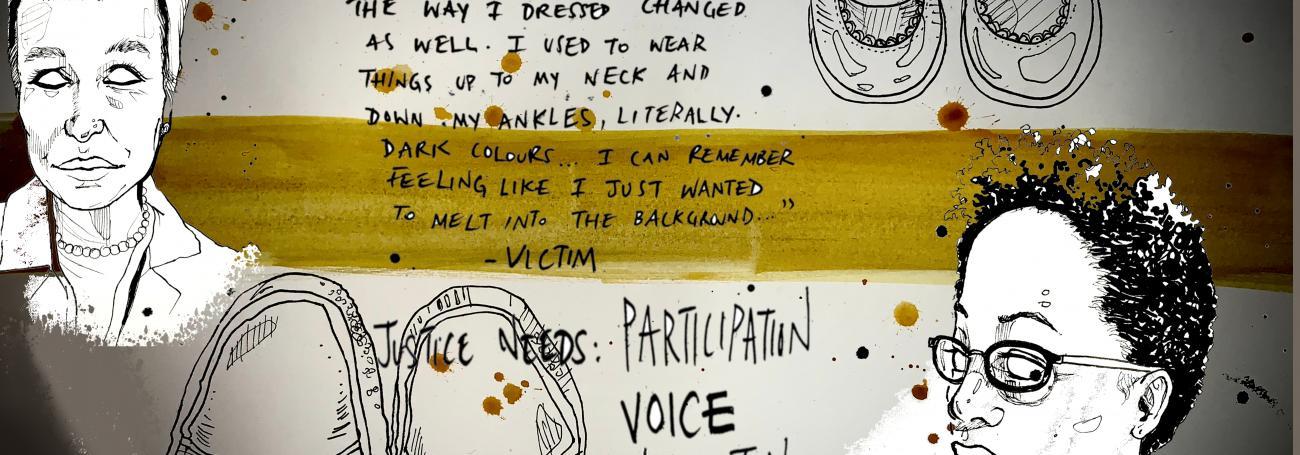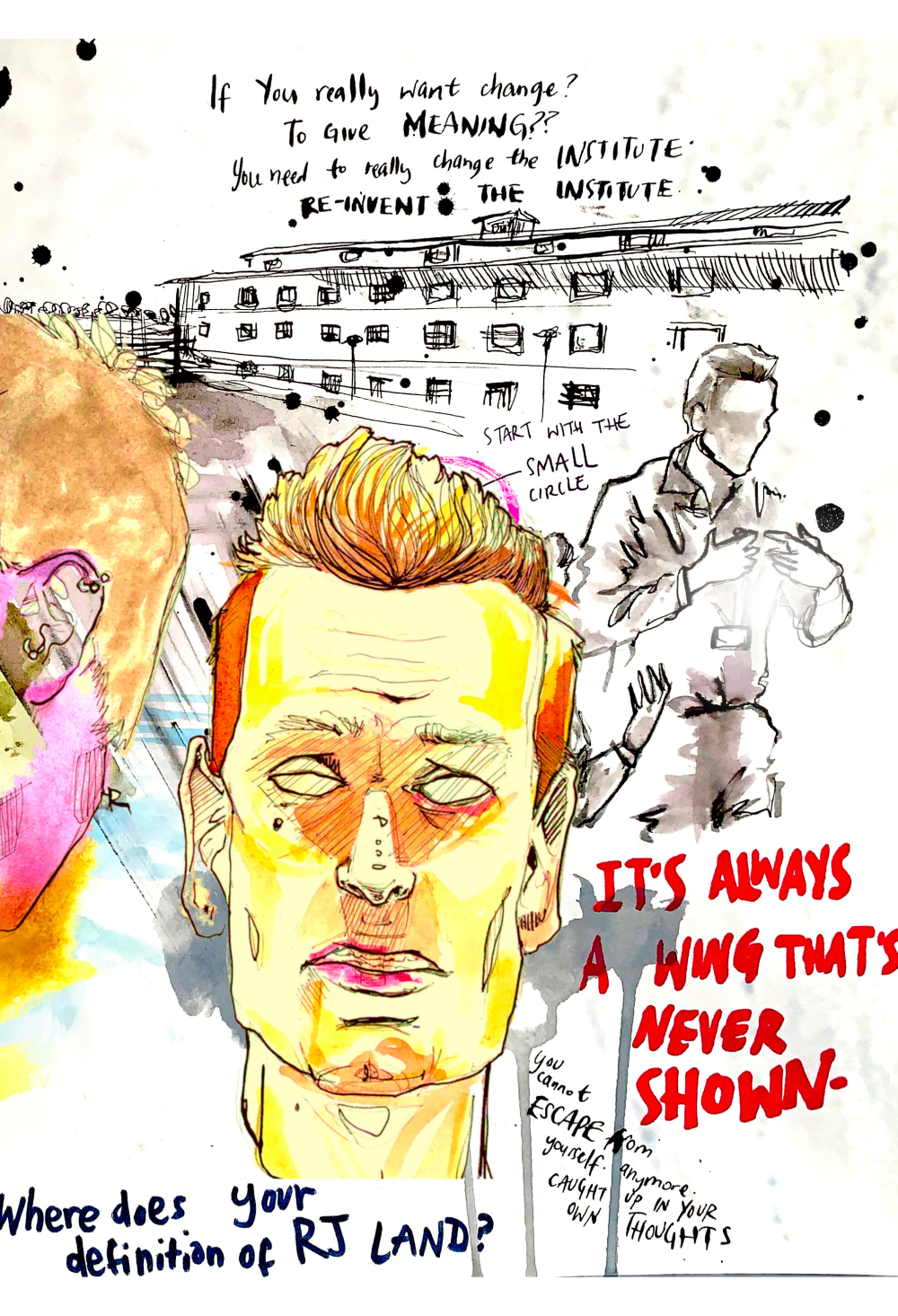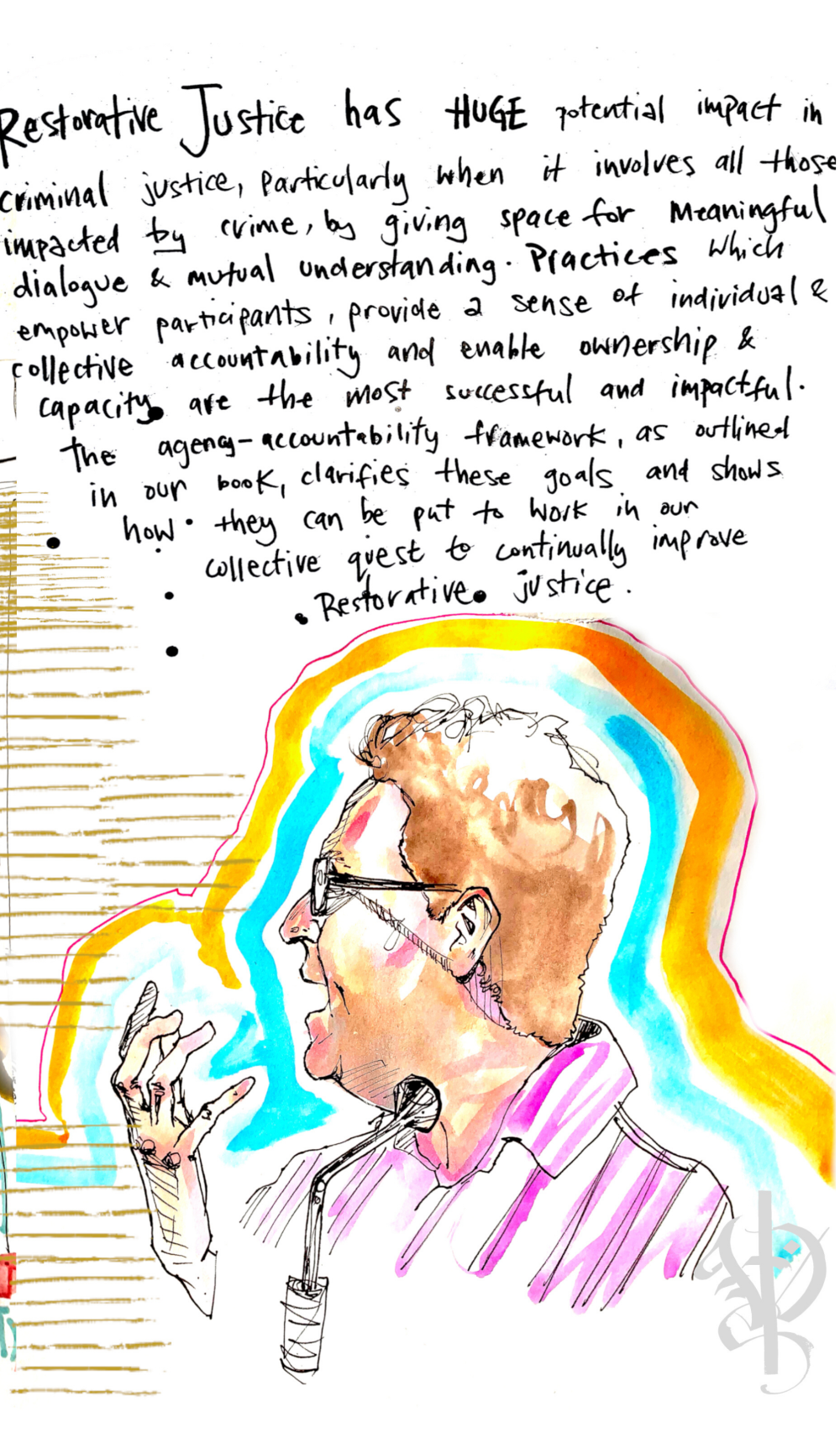2. Ways to participate
One can share her/his experience about harm and a restorative process in multiple ways, and it is up to the individuals which of these they choose:
A) Participating anonymously through a written account. (In case it is easier, this can be audio-recorded by a mediator/facilitator and typed later.) If the person chooses to take part anonymously we guarantee that they will remain anonymous and any piece of identifying information will be altered.
B) Participating with first name or full name in a written way. (In case it is easier, this can be audio-recorded by a mediator / facilitator and typed later.) Participants can choose to which degree they want to share publicly any information about themselves. We want to give space to those ones who wish to come forward publicly and stand behind their story with their names. Such information will be shared publicly only when it bears the consent of all affected parties. (E.g. an offender might want to give a public testimonial, but the victim does not consent. In this cases we will not publish any information that might lead to the identification of the victim.)
C) Participating in a photo / video / podcast campaign. For this purpose we are looking for individuals affected by harm and injustices who consent to share (a part) of their story publicly through a video, or audio interview or a photo taken of them. To such cases the same principles apply as for those who are open to share their stories in an identified way (see point B). In special cases - with the consent of the participant - the EFRJ may choose to make an anonymised video or audio interview. In these cases the recording will manipulated in a way that the interviewee will not be recognisable.
Overview about the different ways to participate (all voluntary):
| |
Anonymously
|
Open to be identified publicly
|
|---|
|
Written story / testimonial
|
yes |
yes, only above 18, with consent of all affected parties
|
|---|
|
Video-recorded testimonial
|
yes |
yes, only above 18, with consent of all affected parties
|
|---|
|
Photo (if possible taken by a commissioned photograph)
|
- |
yes, only above 18, with consent of all affected parties
|
|---|
|
Audio-recorded interview / testimonial (podcast)
|
yes |
yes, only above 18, with consent of all affected parties
|
|---|
Minors can only participate in the campaign with parental or guardian consent (in addition to their own consent) and only anonymously.
Any individual who participates in the campaign is asked to fill out a consent form including details on the campaign and explanations on how the EFRJ protects the rights of any of the contributors (and of those who are affected by the shared information).




